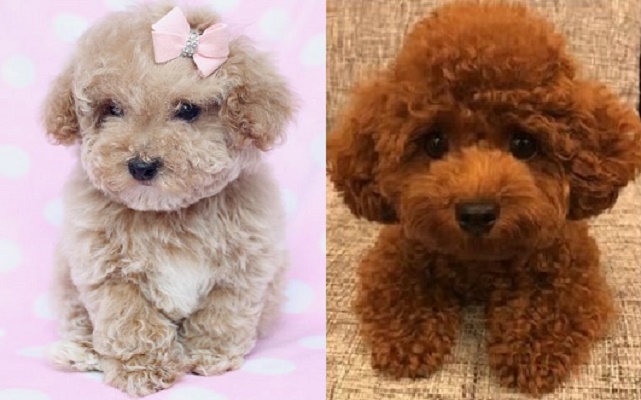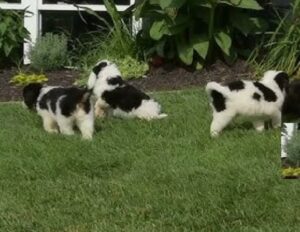Description
Mini Toy Poodles are beloved for their charming personalities and adorable appearance. Originating from larger Poodle breeds, these pint-sized companions have captured the hearts of dog enthusiasts worldwide. In this comprehensive guide, we will delve into the world of Mini Toy Poodles, exploring their history, physical characteristics, temperament, health considerations, care needs, training tips, and more. Whether you are considering adding a Mini Toy Poodle to your family or simply curious about this delightful breed, this article aims to provide valuable insights into their unique traits and requirements.
Introduction to Mini Toy Poodles
Mini Toy Poodles are adorable little bundles of fur that capture hearts with their charm. These pint-sized pups are a smaller version of the popular Poodle breed, known for their intelligence and hypoallergenic coats. Let’s dive into the world of Mini Toy Poodles to discover what makes them so special.
Origin and History of Mini Toy Poodles
Mini Toy Poodles have a rich history that dates back to their larger Poodle relatives. Bred down in size from Standard Poodles, Mini Toy Poodles were originally used as water retrievers in Germany. Over time, they became cherished companions known for their elegance and companionship.
Size and Classification
Despite their name, Mini Toy Poodles are not actually considered a separate breed but rather a smaller size variation of Toy Poodles. Generally standing under 10 inches tall at the shoulder, these little dogs pack a lot of personality into their compact frames. They are classified as a toy breed by major kennel clubs.
Physical Characteristics and Appearance
When it comes to looks, Mini Toy Poodles are like walking balls of fluff that are hard to resist. Let’s explore their distinctive features that make them stand out among dog breeds.
Coat Type and Colors
Mini Toy Poodles are famous for their curly, hypoallergenic coats that come in a variety of colors, including white, black, apricot, and silver. Their luxurious fur requires regular grooming to prevent matting and maintain their signature fluffy appearance.
Facial Features and Body Structure
With their expressive eyes and refined facial features, Mini Toy Poodles exude a sense of intelligence and grace. Their compact bodies are well-proportioned, with a straight back and a characteristic springy gait that adds to their elegant demeanor.
Temperament and Personality Traits
Don’t let their small size fool you—Mini Toy Poodles have big personalities that make them a joy to be around. Let’s delve into their temperament and what makes them such lovable companions.
Intelligence and Trainability
Mini Toy Poodles are highly intelligent and eager to please, making them a breeze to train. Their quick wit and problem-solving skills make them excel in obedience and agility activities, proving that good things do come in small packages.
Behavioral Traits and Socialization
Despite their regal appearance, Mini Toy Poodles are social butterflies that thrive on human companionship. They are affectionate, playful, and enjoy being the center of attention. Proper socialization from an early age helps them develop into well-rounded dogs with friendly dispositions.
Health Considerations and Care Needs
Ensuring the well-being of your Mini Toy Poodle involves understanding their specific health needs and providing them with the care they require to lead a happy and healthy life.
Common Health Issues in Mini Toy Poodles
Like all dog breeds, Mini Toy Poodles are prone to certain health conditions, including issues such as hip dysplasia, patellar luxation, and dental problems. Regular veterinary check-ups and a healthy lifestyle can help minimize these risks.
Dietary Requirements and Exercise Needs
Maintaining a balanced diet and providing regular exercise are essential for keeping Mini Toy Poodles in top shape. Their small size means they have relatively low exercise needs, but mental stimulation through playtime and interactive toys is crucial for their well-being. Consult your veterinarian for personalized diet and exercise recommendations tailored to your Mini Toy Poodle’s individual needs.
Training and Socialization Tips
Puppy Training Techniques
Training a Mini Toy Poodle puppy is like teaching a tiny, fluffy sponge – they soak up information quickly! Positive reinforcement works wonders with these intelligent pups. Keep training sessions short, fun, and consistent to help them master commands like sit, stay, and paw.
Socialization with Other Pets and People
Mini Toy Poodles are social butterflies that love making new friends, whether furry or human. Early socialization is key to ensuring they grow up to be well-adjusted and friendly companions. Introduce them to different pets, people, and environments to help them develop into confident and sociable pups.
Mini Toy Poodle as a Family Pet
Compatibility with Children
These pint-sized pooches are great with kids, thanks to their gentle nature and playful demeanor. Supervision is always a good idea to ensure both the kids and the pup have a safe and enjoyable time together. With proper training and socialization, Mini Toy Poodles can be fantastic family pets.
Adaptability to Different Living Environments
Whether you live in a cozy apartment or a spacious house, Mini Toy Poodles can thrive in various living situations. As long as they receive enough love, attention, and exercise, these adaptable pups will be happy to call any place home.
Exercise and Activity Requirements
Physical Exercise Needs
Although Mini Toy Poodles are small in size, they have a surprising amount of energy to burn. Daily walks, playtime, and interactive toys can help keep them physically fit and mentally stimulated. Aim for around 30 minutes to an hour of exercise each day to keep your Mini Toy Poodle happy and healthy.
Mental Stimulation and Enrichment Activities
In addition to physical exercise, Mini Toy Poodles also need mental stimulation to prevent boredom and behavioral issues. Engage their clever minds with puzzle toys, training sessions, or interactive games that challenge their intelligence and keep them entertained.
Grooming and Maintenance Tips
Regular Grooming Routine
Maintaining a Mini Toy Poodle’s signature fluffy coat requires regular grooming sessions. Brush their coat a few times a week to prevent matting and tangles. Regular baths, nail trims, and ear cleanings are also essential to keep your pup looking and feeling their best.
Professional Grooming Services and Tools
While you can handle basic grooming tasks at home, professional grooming services can help keep your Mini Toy Poodle’s coat in top condition. Consider scheduling regular grooming appointments to keep their coat trimmed, neat, and stylish. Investing in quality grooming tools like slicker brushes and grooming shears can also make at-home grooming sessions smoother and more effective.
In conclusion, Mini Toy Poodles are not just pets but cherished members of the family, bringing joy and companionship to their owners. Their intelligence, affectionate nature, and compact size make them ideal companions for individuals and families alike. By understanding their needs and providing them with love and care, Mini Toy Poodles can thrive and continue to enchant those around them with their playful and loving demeanor. Whether you are a seasoned Poodle enthusiast or a newcomer to the breed, the Mini Toy Poodle is sure to leave a lasting paw print on your heart.
Frequently Asked Questions about Mini Toy Poodles
1. Are Mini Toy Poodles good with children?
Mini Toy Poodles are known for their gentle and playful demeanor, making them great companions for children. However, as with any dog breed, proper socialization and supervision are crucial to ensure a harmonious relationship between the dog and children.
2. Do Mini Toy Poodles shed a lot?
Mini Toy Poodles have a hypoallergenic coat that sheds minimally. Regular grooming and maintenance, including brushing and professional grooming, can help keep their coat in top condition and minimize shedding.
3. How much exercise do Mini Toy Poodles need?
Despite their small size, Mini Toy Poodles are energetic and require regular exercise to stay healthy and happy. Daily walks, playtime, and mental stimulation activities are essential to meet their exercise needs.
4. What are the common health issues in Mini Toy Poodles?
Mini Toy Poodles may be prone to certain health conditions such as patellar luxation, dental problems, and progressive retinal atrophy. Regular veterinary check-ups and a healthy diet can help prevent or manage these health concerns.




